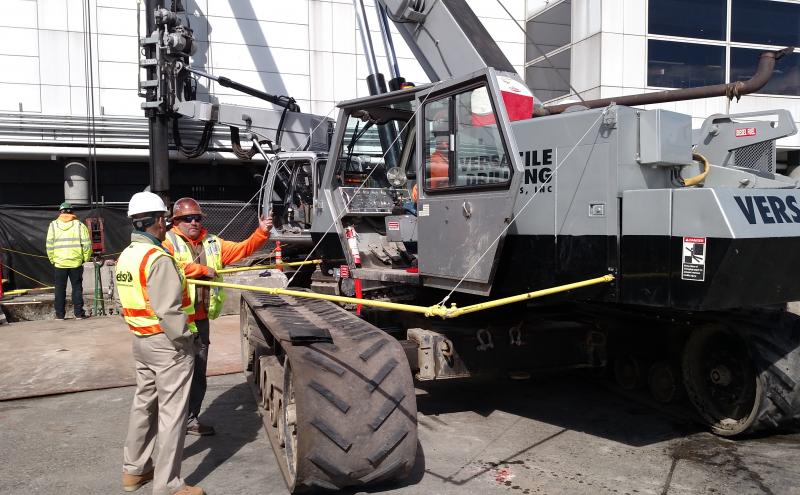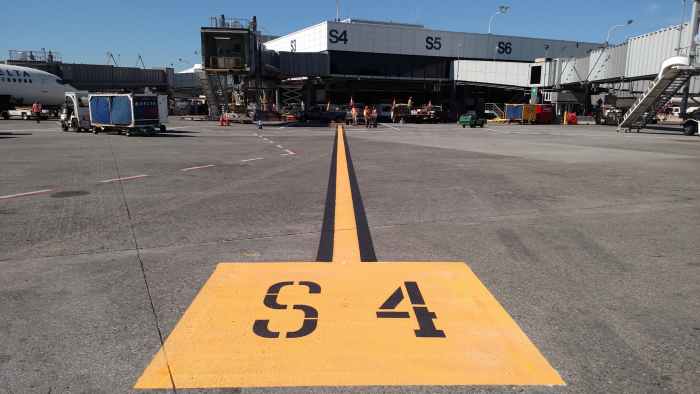
As part of our small business series, we’re featuring Larry Toimil, President of EHS International in Seattle, about the high points and challenges of managing a small business.
EHS International, Inc. (EHSI) is a certified minority-owned disadvantaged small business that specializes in hazardous materials management, industrial hygiene, environmental consulting, indoor air quality, remediation, construction management, regulatory compliance, and regulatory agency liaison services.
Tell us about EHSI and how your company has grown.
- 1996 — EHSI was formed to purchase assets of a former company that had gone into bankruptcy. At that time, the company consisted of four employees with annual revenues of less than $400,000.
- 1998 — The company was reorganized to focus on its main technical strengths (hazardous materials management and industrial hygiene services) marketed to the A/E industry and public-sector clients mainly school districts, the GSA and local governments.
- 2004 — EHSI was approved by the SBA to enter the 8(a) Program. Over the next nine years, EHSI pursued and was awarded several ID/IQ 8(a) set-aside contracts with NAVFAC NW and the USACE Seattle District. Revenues from these contracts allowed EHSI to accelerate the development of internal financial and business development infrastructure and expand its technical capabilities into new services compatible with the needs of EHSI existing client base including the Port of Seattle.
- 2016 — EHSI was ranked in the Puget Sound Business Journal’s Top 25 Environmental Services Firms, Top Minority-Owned Businesses, and Fastest Growing Minority-Owned Businesses Lists. The company has now grown to about 30 full-time professionals with revenues of about $4 million.
What’s the biggest challenge of owning your own business?
One of the biggest challenges for our small business is maintaining a steady and controlled growth. EHSI has been able to grow our company revenues in the past few years by maintaining a base of satisfied clients, expanding services to existing clients such as the Port of Seattle, and diversifying into new markets through networking.

What do you like the most about running a business?
We like to get to know our staff and establish new partners. It’s also been rewarding getting involved with societies such as the Society of American Military Engineers (SAME), Northwest Environmental Business Council (NEBC), and the American Council of Engineering Companies (ACEC) Washington.
How have you worked with the Port of Seattle?
EHSI holds a POS Small Works General Contractor Portwide Support On-call contract and has performed several small construction projects under this contract. Construction projects have included the painting of gate striping, construction of a jetway structural support column, barricade graphics, and other small projects that do not fall under larger terminal construction contracts. Recently EHSI was awarded an on-call contract for Regulated Materials Management that includes hazardous materials surveys, abatement monitoring, construction management support and operations, and management support. In addition, EHSI provides services as a subconsultant to larger firms that have Port contracts.
Have you attended a PortGen session? What was the most valuable thing you learned?
In 2016, EHSI attended and graduated from the POS PortGen small business training program. PortGen is an intensive eight-week program to help small businesses learn more about the Port and how to do business with the Port. The program has helped EHSI understand the Port’s processes and build relationships with the Port and large contractors that hold Port contracts. Through these relationships, EHSI has been successful in winning work as both a prime consultant and subconsultant to larger businesses with Port contracts.
 How has working with the Port of Seattle impacted your business? How has it helped you as a business owner?
How has working with the Port of Seattle impacted your business? How has it helped you as a business owner?
Working for the POS has allowed our firm to expand our construction management services and diversify our client portfolio. In addition, our work for the POS has diversified project experience for future work with other airport- and seaport-related clients.
Any advice you can give to small business owners?
It is important for small businesses to have persistence and take advantage of POS outreach activities. Small businesses need to build relationships and team with other firms to obtain work with the Port.






